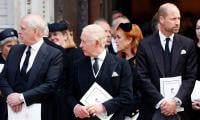The real battle
The writer is a freelance columnist and former newspaper editor.
There have been repeated claims over the last few months that the battle against militants has been won and a successful operation completed. Quite possibly, in purely military terms, this is an accurate assessment, with targeted areas in the tribal belt duly cleared and the army apparently ready to move on to do battle on other fronts, with corruption emerging as the new centre of attention.
While the merits and demerits of this can be debated at length, before moving away from the militancy question, perhaps we need to pan in on it a little more closely, so that we can obtain a clear image of what has been achieved and what still needs to be done. While the hold of militant forces on specific tracts of the country may have been loosened, it is evident that these elements retain a distinct, dangerous presence.
The murder of the minister for minorities in KP, Sardar Soran Singh, in his native Buner, proved not to be an act of violence directed against the minorities. It has turned out that Singh was murdered by another minority leader on the basis of personal and political enmity.
But this does not change the reality for hundreds of members of minority communities living in the country, including those in KP and Fata. There has been an increased pressure on them and as a result, hundreds of Sikhs, who are ethnically Pakhtun and speak Pashto as a first language, have left their homes to settle in Peshawar, Rawalpindi or places even further south.
The Taliban have then been able to change the structure of these communities and damage the harmony within them. This is a dangerous power to wield. It would be wise not to forget this as we talk about the true reasons that Soran Singh was murdered. He may not have been killed on the basis of religion, but others have been, and militant groups have had the power to capitalise on their weakness.
For now, much of this power remains intact. The villages and towns in Fata and KP have yet to return to the social unity that they once knew. The miniscule minority population based there says that the region is increasingly insecure. This alone proves that while a battle may indeed have been won, the bigger war rages on.
We can only declare victory if we can return to the more peaceful life that existed before extremism took so firm a grip on the lives of people. It is telling that squash player Maria Toorpakay was unable to return to her native South Waziristan after winning a silver medal for her country at the South Asian Games in India; it would have been too unsafe for her to do so.
Of course, bringing about social change is, in many ways, more complicated than altering things through military action. In the case of the current battle against terror, it would require government involvement to achieve this. The military has, in fact, already pointed out that the gains attained through the use of tanks, guns, aircraft and other weaponry can only be retained if attention is given to developing the conflict-hit areas and assuring the people that the state can protect them and ensure their welfare. At this time, this sense of security is missing, notably among minority groups, but also among virtually all others who live in many parts of the country.
It is also true that the war has fanned out to encompass many other spheres of life in the nation. Even in major cities, mindsets about religion have changed, and the manner in which we practice it is playing a bigger role in our lives. The presence of the Islamic State in big cities has already been established. Good governance and sensible leadership could make a difference but, sadly, we lack them.
In Sindh, the Sindh Textbook Board has produced science books for children that integrate religion and physics in an extraordinarily surreal fashion. Armed with knowledge of this kind, our young people cannot hope to make any significant impact in their own country or in the world. They deserve a more meaningful, more logical education, and this can come only if the government shows a determination to deliver.
Right now, it seems to be moving in just the opposite direction, with the Ministry of Religious Affairs in the centre reportedly ordering that Quranic teachings be made compulsory from the primary school level to matriculation. While it could be argued that this fits with the idea of an Islamic state, we also need to look at reality.
The fact is that there are many different schools of thought in the country and it seems grossly insensitive to sentence all children, including non-Muslims, to a particular line of thinking. What we need most right now is to develop sensitivity while taking on matters of religion and to inculcate a respect for all beliefs, which has currently gone missing in our society.
It is of course in some ways easy for the military to suggest that the civilian setup should play a more active role in development and governance. Yes, of course it should, but this can happen only if there are sufficient funds to build roads, schools and create livelihood opportunities in some of the most deprived areas of our country. One of the reasons that these resources are not available is the immense amount spent on defence. We need to take a holistic view of the situation and then devise remedies.
But what we can say with some certainty is that there is still a long way to go in the effort against militancy and extremism. Pockets of Taliban support continue to exist in areas where fighting took place over the last few months and also in other parts of the country.
Decimating this support is a complex operation. It requires many different plans and a huge amount of resolve, which is not easy to find when there is so much uncertainty and when the governments remains under threat constantly. We need stability in order to bring change, and change in order to create stability. This paradigm is not an easy one to resolve. Which should come first: stability or change?
There are simply no immediate answers. In the absence of definite solutions, we can only hang on to essential principles. There is a need to do more to safeguard democracy, while also acting against everything that undermines it, including entrenched corruption. The main task, however, must be to seek change in one way or the other. If the momentum towards this can be created, we may find other problems are resolved as things move along.
The issue is from where we are able to push along and who will drive us to the starting position. From here we must move towards a final goal, marked on a map that charts the future destiny of a country that, for now, remains locked in continuous turmoil and the violence that stems from it.
Email: kamilahyat@hotmail.com
-
 Gigi Hadid Talks About 'relieving Tension' Amid Having Hashimoto's Disease
Gigi Hadid Talks About 'relieving Tension' Amid Having Hashimoto's Disease -
 Sarah Ferguson Is 'persona Non Grata', Prince William Makes It Clear To Everyone
Sarah Ferguson Is 'persona Non Grata', Prince William Makes It Clear To Everyone -
 Northern Lights Alert On Valentine’s Day: How, Where & Best Time To Watch Auroras
Northern Lights Alert On Valentine’s Day: How, Where & Best Time To Watch Auroras -
 Dennis Quaid Reveals What Keeps His Marriage To Laura Savoie Healthy
Dennis Quaid Reveals What Keeps His Marriage To Laura Savoie Healthy -
 Mustafa Suleyman Says Microsoft Is Building Its Own AI Superintelligence
Mustafa Suleyman Says Microsoft Is Building Its Own AI Superintelligence -
 Jessica Alba, Cash Warren Finalize Divorce After 16 Years Of Marriage
Jessica Alba, Cash Warren Finalize Divorce After 16 Years Of Marriage -
 China’s AI Boom Takes Center Stage At Spring Festival One Year After DeepSeek Stirred The Industry
China’s AI Boom Takes Center Stage At Spring Festival One Year After DeepSeek Stirred The Industry -
 James Van Der Beek Called His Sixth Child Jeremiah 'healing For Us' Before His Death
James Van Der Beek Called His Sixth Child Jeremiah 'healing For Us' Before His Death -
 Elon Musk Vs Reid Hoffman: Epstein Files Fuel Public Spat Between Tech Billionaires
Elon Musk Vs Reid Hoffman: Epstein Files Fuel Public Spat Between Tech Billionaires -
 Gordon Ramsay Denies Victoria Beckham Got Handsy With Brooklyn At His Wedding
Gordon Ramsay Denies Victoria Beckham Got Handsy With Brooklyn At His Wedding -
 Gordon Ramsay Makes Unexpected Plea To Brooklyn As He Addresses Beckham Family Feud
Gordon Ramsay Makes Unexpected Plea To Brooklyn As He Addresses Beckham Family Feud -
 Prince Harry Warns Meghan Markle To 'step Back'
Prince Harry Warns Meghan Markle To 'step Back' -
 Selena Gomez Explains Why She Thought Lupus Was 'life-or-death'
Selena Gomez Explains Why She Thought Lupus Was 'life-or-death' -
 New Zealand Flood Crisis: State Of Emergency Declared As North Island Braces For More Storms
New Zealand Flood Crisis: State Of Emergency Declared As North Island Braces For More Storms -
 Nancy Guthrie Case: Mystery Deepens As Unknown DNA Found At Property
Nancy Guthrie Case: Mystery Deepens As Unknown DNA Found At Property -
 James Van Der Beek's Brother Breaks Silence On Actor's Tragic Death
James Van Der Beek's Brother Breaks Silence On Actor's Tragic Death



